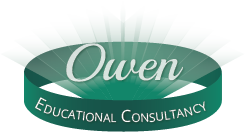
‘I believe that my job is to push people beyond what is expected of them’. So says the music teacher who bullies, uses public belittlement and throws chairs at an up-and-coming drumming student in ‘Whiplash’, a recently released US film about college music classes. The teacher does eventually admit that there may be a line that he crossed in seeking to challenge the student to excel!
The film made me think about the OECD paper about improving learning outcomes through innovative practices ‘The Nature of Learning: A Practitioner Guide’. This paper stresses teacher understanding the role of emotion and motivation in the learning process and cautions that when students experience negative emotions this can direct their attention away from learning. Challenging students to do their best is important and setting high expectations is essential but there needs to be support and the learning goals must be realistic.
Of course at the root of all of this is teacher quality as the key for successful student learning. As Dylan Wiliam says, teachers building more effective pedagogical approaches through learning together over a sustained timeline is needed, and collegial learning is particularly effective. Accountability and support, focussing on small steps and new ways of acting to change habits and a commitment to collecting data about changes in learning outcomes are some of the crucial aspects involved in this collegial learning, all happening within teacher professional learning communities.



